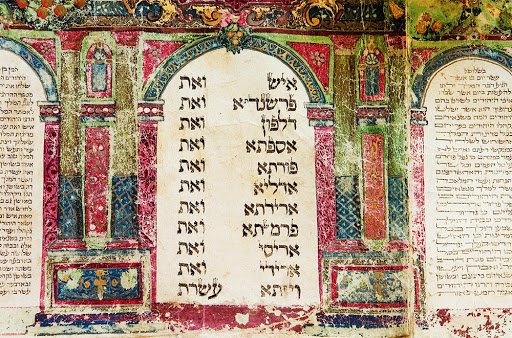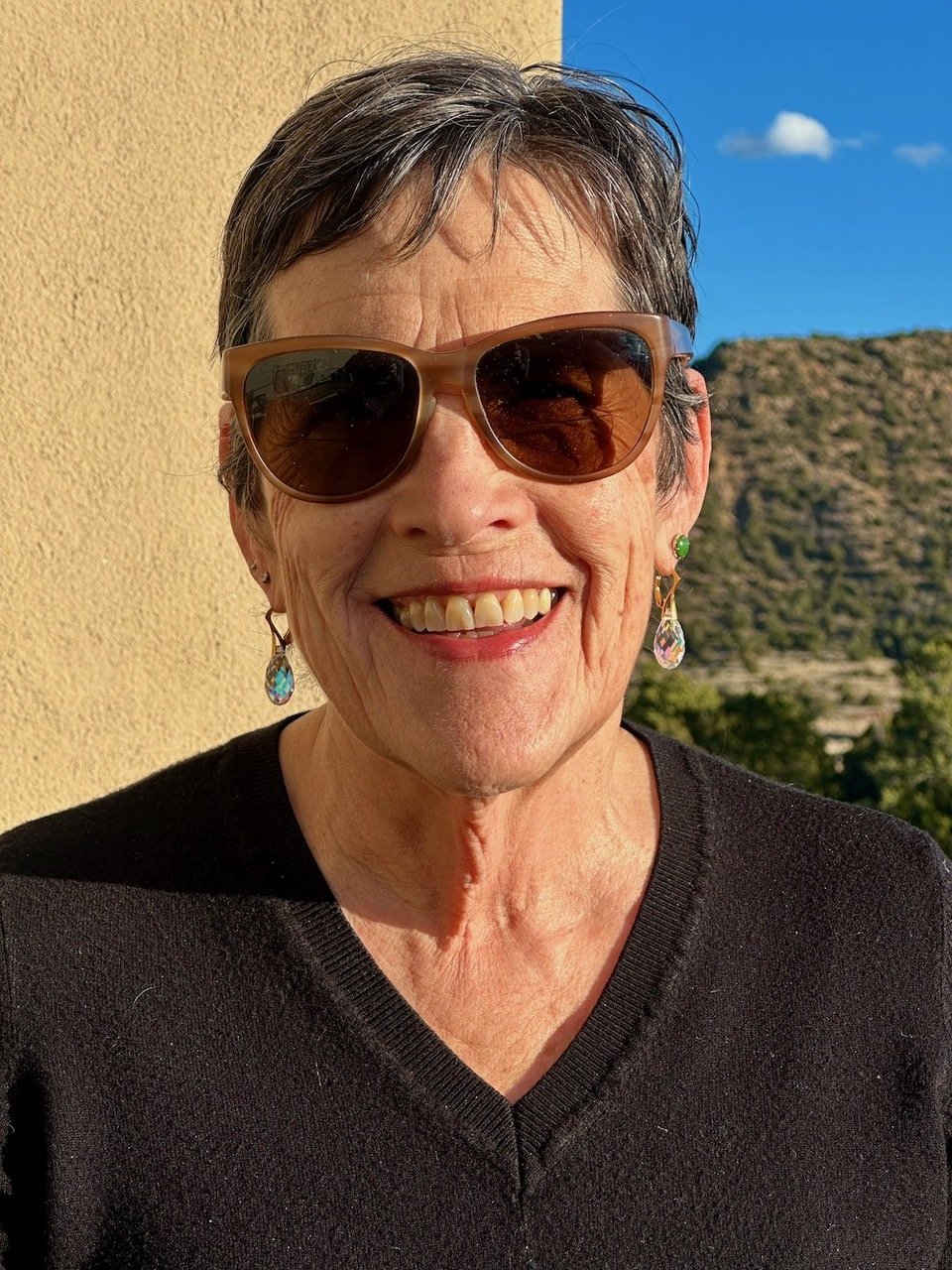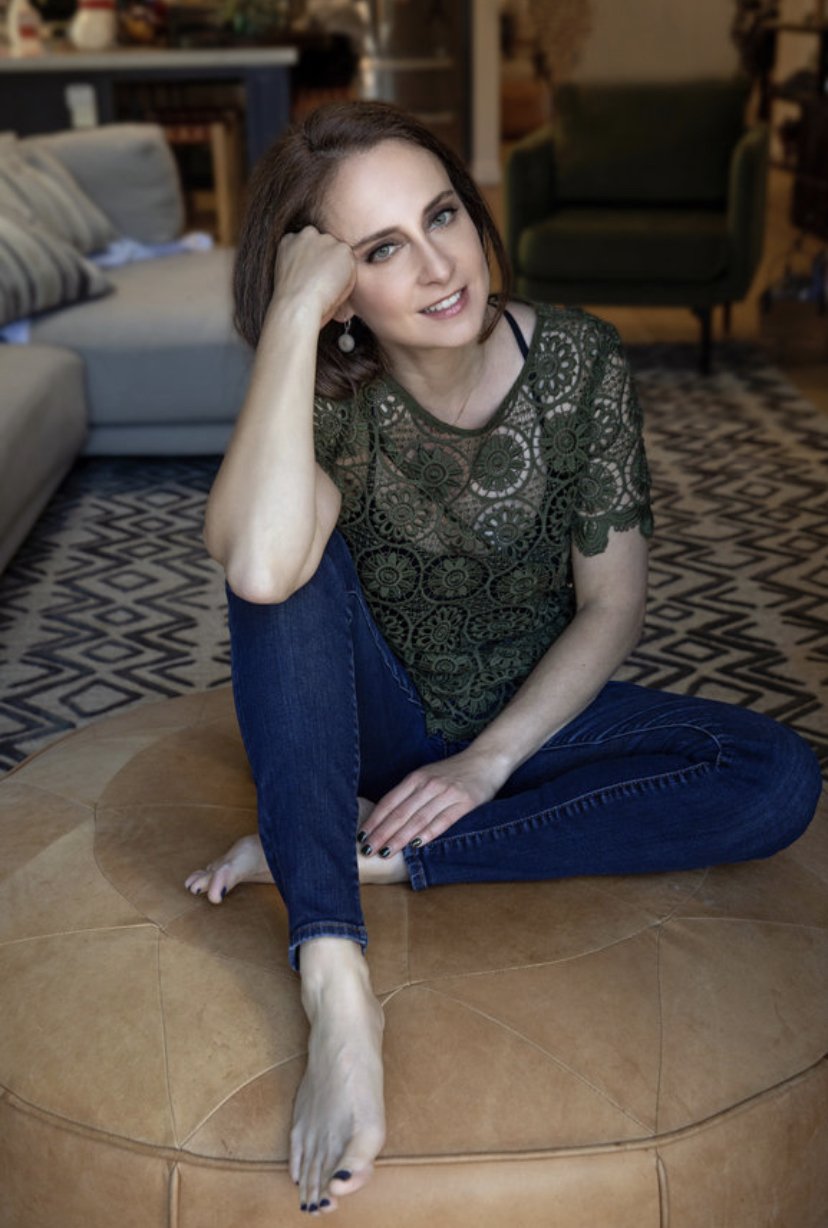Chapter 9 Project
Read the report
(click image)


Background
During the holiday of Purim, it is customary for communities to gather and read the Book of Esther, a satirical and grandiose tale from the 5th century BCE that recounts the near extermination of the Jews by the Persian Empire.
While the climax of the story celebrates the Jews escaping their own annihilation, the Jews’ response to that victory is brutal retaliation against their enemies.
In Chapter 9 of Megillat Esther, the Jews commit a vengeful mass killing, causing the loss of more than 75,000 human lives: "So the Jews struck at their enemies with the sword, slaying and destroying; they wreaked their will upon their enemies (Esther 9:5)."
For many of us, Chapter 9 is a shameful part of our people’s mythology, depicting the worst elements of retaliatory bloodthirst.
Some individuals and communities choose to skip over these disturbing descriptions, while others read the text in a whisper or with the melancholic Eicha/Lamentations trope to express their pain over the suffering of the innocent. Additionally, there are those who remind themselves that the text is not a historical account but rather a fantastical tale of a powerless people.
But what if there was a different way to navigate this painful chapter? An alternative to unbridled retribution, that replaced violence with hope? That uplifted transformation over reprisal?
Because tragically, these questions of how best to respond to attempted annihilation are not at all a fantasy in our own time, but rather, all too real.
As we know, we are living through an extremely dark chapter in the history of the Jewish people. After decades of displacement, occupation, corruption, and strife, the people of Israel faced an unprecedented attack by Hamas in October of 2023. In the months since, we have seen levels of violence in Gaza and the West Bank that break our hearts.
Attempted bloody annihilation has led to even greater attempted annihilation, with no end in sight. How much is too much? Is another world possible?

This Purim, The Shalom Center invited dear writers, dreamers, and seekers, to reimagine Chapter 9 of the Book of Esther as an exercise in dreaming new worlds, new responses, and new endings into existence.
If we imagine the 5th century Jews’ response to their almost annihilation, how would we wish that story unfolded differently? If we apply a worldview that seeks peace, love for all humans, and recognizes every person as created in the image of God, what is the ending we and the world long for?
In this moment, new endings are being called into existence. Both in the Purim story and in Israel/Palestine. Let’s channel those stories together.
We hope these rewritten Chapter 9’s will be integrated far and wide into your Purimshpiel performances, Megillah readings, text studies and discussions, or any other creative manner that helps you and your loved ones and networks grapple with the world of Chapter 9 as it’s written and Chapter 9 as it could be.
Meet the Authors
-
Arlene Goldbard (www.arlenegoldbard.com) is a New Mexico-based writer, speaker, consultant, cultural activist, and visual artist whose focus is the intersection of culture, politics and spirituality. Her books include In The Camp of Angels of Freedom: What Does It Mean to BeEducated?; The Wave; The Culture of Possibility: Art, Artists & The Future; New Creative Community: The Art of Cultural Development; Community, Culture and Globalization; Crossroads: Reflections on the Politics of Culture; and Clarity. Her essays have been widely published. She has addressed academic and community audiences in the U.S. and Europe and provided advice to community-based organizations, independent media groups, institutions of higher education, and public and private funders and policymakers. Along with François Matarasso, she co-hosts “A Culture of Possibility,” a podcast from miaaw.net. From 2012 to 2019, she served as Chief Policy Wonk of the USDAC (usdac.us). From 2008-2019, she served as President of the Board of Directors of The Shalom Center.
-
Shalom Center Advisory Council Member
Rabbi Tamara R. Cohen works as Chief of Program and Strategy at Moving Traditions which emboldens Jewish teens to thrive through the pursuit of shleimut/wholeness, hesed/caring connections and Tzedek/a Jewish and feminist commitment to justice. She lives, hikes, and creates ritual in Philadelphia with her partner, their two sons and her sister and through Beitah, an emerging community that still largely lives between this world and the one that is coming. She is slowly compiling her writing at Underthispalm.wordpress.com and is incredibly grateful to be a 2023 recipient of a Covenant Award for Excellence in Jewish Education.
-
Shalom Center Advisory Coucil Member
Rabbi Diane Elliot is a ritual leader, a somatic movement therapist, and a spiritual director. She serves as a Project Director for ALEPH, a founding steward and faculty for the Taproot Community, and is on the Advisory Council of the Shalom Center. She is the author of three books of poetry, most recently "The Voice is Movement, A Life in Poetry".
-
Genevieve Greinetz is a writer & rabbi in Northern California. She serves as assistant rabbi at a local congregation & enjoys being outside in every season.
-
In their full time work, Graie is the Chief Vision Officer at Bend the Arc: Jewish Action where he designs political education curriculum for thousands of activists, organizational leaders, and members of Congress and develops and leads trainings on antisemitism and anti-Black racism, the history of racial inequality in the US, and understanding how antisemitism animates white nationalist movements.
Prior to joining Bend the Arc, Graie was a community organizer fighting for racial equity in school funding in Philadelphia with POWER Interfaith, a member of Faith in Action.
-
Dan Libenson is President of Lippman Kanfer Foundation for Living Torah, which is dedicated to helping Jews and fellow travelers apply Jewish wisdom to thrive and shape a better world. He is also the founder and former president of Judaism Unbound, where he continues to co-host the Judaism Unbound Podcast and The Oral Talmud videocast, as well as to teach in the UnYeshiva center for Jewish learning and unlearning. Previously, Dan served as executive director of the University of Chicago Hillel and Director of New Initiatives at Harvard Hillel. Dan has served on the faculties of HUC’s Zelikow School of Jewish Nonprofit Management, the Bronfman Fellowship, the Wexner Heritage program, and the Foundation for Jewish Camp's Cornerstone Fellowship. He served as translator of "The Orchard," a novel about the early days of Rabbinic Judaism, by renowned Israeli novelist Yochi Brandes, and as translation editor of Brandes's "The Secret Book of Kings."
-
A native New Yorker, Dara Resnik holds a B.A. in Economics from Tufts University and an M.F.A. in Motion Picture Producing from the University of Southern California’s School of Cinematic Arts’ Peter Stark Producing Program. After a half-decade in feature writing, Dara dipped her toes into the television world and was instantly submerged. Dara has been writing and producing TV for over 15 years, including stints on Aaron Sorkin’s Studio 60 on the Sunset Strip, Pushing Daisies, Mistresses, Castle, Jane the Virgin, Joey Soloway’s I Love Dick, and Marvel’s Daredevil. Dara co-created Home Before Dark for Apple TV+, a drama inspired by real-life 13-year-old crime reporter Hilde Lysiak, and co-showran and executive produced The Horror of Dolores Roach for Amazon Studios and Blumhouse Television. Between projects, Dara teaches the next generation of writers including USC students from the Peter Stark Producing Program and the John Wells Division of Writing for Screen & Television, the Sundance labs, Veterans in Media and Entertainment, Rideback, and the US State Department's Middle East Media Initiative. In her spare time, Dara is active in her progressive Jewish community, IKAR, and runs the occasional marathon. Dara finds the motivation to push ever onward from the many young women she mentors, and her greatest source of inspiration is her daughter, Orly.
-
Devon Spier (she/they) is a poet and digital design theologian, who writes and teaches others to write their own theology through poems, prose and digital images.
Believing that Jewish life can be an elevated expression of democracy, she transmits a religion of heartened skepticism in which all people and their questions are embraced exactly as they are.
Devon is a former Liturgist-in-Residence with the National Havurah Committee and Student Rabbi with the Museum of the City of New York.
They were selected as the first Canadian rabbinic student to participate in The T’ruah Rabbinic and Cantorial Summer Fellowship in Human Rights and have been published and consulted by Reconstructing Judaism, the Central Conference of American Rabbis, Liberal Judaism and the London School for Jewish Studies.
Devon is the author of two books, both bestsellers, "Heart Map and the Song of Our Ancestors" (2018) and "Whatever it is, gently: Quiet Meditations for the Noise of the Pandemic" (2020).
-
Sheila is a graduate of the Reconstructionist Rabbinical College and served as a congregational rabbi for seventeen years. She is co-founder of the Institute for Jewish Spirituality and serves now as a spiritual director mainly to clergy. Her most recent book is called Let Us All Breathe Together. She is married to Maynard Seider and is the grandma of six.
-
Rabbi Cat Zavis is a passionate shaper of Jewish rituals and services that inspire and draw connections between the spiritual, personal, and political. She is a spiritual social justice activist, attorney, and visionary leader with over 20 years experience in empathic and people-centered leadership and collaboration. A sought after facilitator and trainer in nonviolent communication, prophetic empathy, collaboration, and conflict resolution, she has over 25 years experience working with and helping people understand our shared needs and how to challenge manifestations of othering and build beloved communities of belonging. As co-editor of Tikkun magazine she has both written articles and helped shape the magazine; as Executive Director of the Network of Spiritual Progressives she has trained over 1000 people in Prophetic Empathy and Revolutionary Love.

Submit your own Chapter 9?
Are you feeling called to write a new Chapter 9? Share it with us and we’ll add it to a public collection on our website.
Submissions can be in Hebrew, English, or both.
Suggested scope is between 500-1,000 words.
Submissions should be submitted through the button below.















